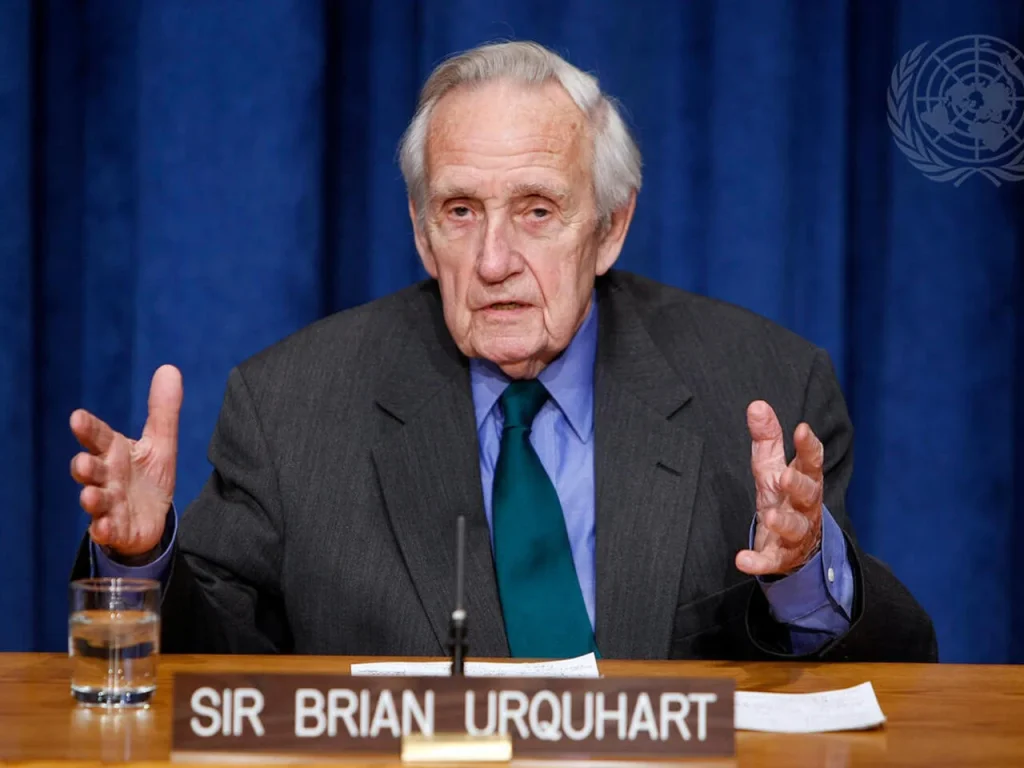Sir Brian Urquhart, born in 1919 in Bridport, England, and passing on January 2, 2021, left an enduring mark on the United Nations as a key architect of its peacekeeping operations.
Serving under five Secretaries-General, he introduced the iconic blue helmets to distinguish peacekeepers and led 13 missions, including challenging operations in the Democratic Republic of Congo (DRC), Cyprus, Lebanon, and Namibia.
Congo Crisis and Resilience
In 1960, Urquhart faced one of his toughest assignments in the DRC, managing a chaotic conflict with armed factions. In 1961, Congolese rebels in Katanga kidnapped and beat him, but Indian Gurkha peacekeepers secured his release by threatening to attack the presidential palace. Urquhart later recounted ejecting Joseph-Désiré Mobutu from his bedroom during Mobutu’s 1965 coup, frustrated by the future president’s theatrics.
Shaping the UN’s Foundation
Joining the UN in 1945 after serving in British military intelligence during World War II, Urquhart helped establish its early operations, including selecting New York as its headquarters. As an aide to Secretary-General Dag Hammarskjöld and later Under-Secretary-General for Political Affairs (1974–1986), he worked closely with Nobel Peace Prize winner Ralph Bunche, later writing acclaimed biographies of both men.
WWII Roots of Peacekeeping
Urquhart’s peacekeeping vision stemmed from his WWII experiences as chief intelligence officer for the British Airborne Corps. He opposed General Bernard Montgomery’s 1944 Rhine bridge assault, which cost 17,000 Allied lives, and was among the first to discover Bergen-Belsen concentration camp, where Nazis killed at least 50,000. These events shaped his commitment to peaceful conflict resolution.
Global Civil Servant Legacy
Urquhart championed the loyalty of global civil servants to humanity over individual nations. His memoir, A Life in Peace and War, reflects his optimism for a just world, quoted by UN Secretary-General António Guterres: “We were all optimists…who believed in organizing a peaceful world.” Guterres hailed Urquhart’s “incomparable contributions” to the UN’s mission.
Honors and Family
Knighted by Queen Elizabeth II in 1986, Urquhart retired that year but continued writing influential books on the UN.
He is survived by five children, a stepson, 14 grandchildren, and 10 great-grandchildren. His death, reported by The New York Times on January 4, 2021, marked the loss of a peacekeeping pioneer.






